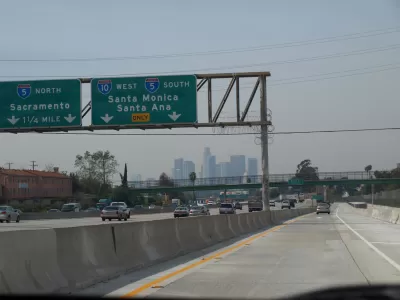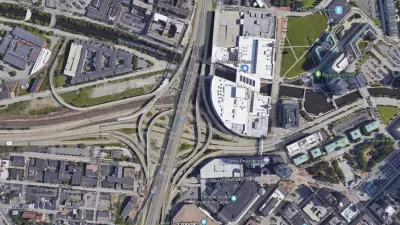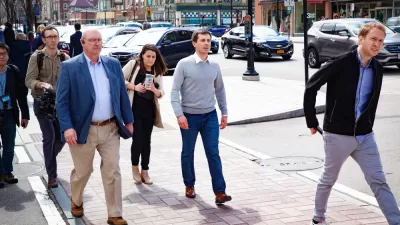The U.S. Department of Transportation nominee acknowledged the impact the interstate highway system has had on communities of color and vowed to mitigate the damage.

In a tweet following his statement accepting President-elect Biden's nomination for Secretary of Transportation, Pete Buttigieg promised to right the wrongs of the past, acknowledging that "Black and brown neighborhoods have been disproportionately divided by highway projects or left isolated by the lack of adequate transit." Buttigieg signaled that the Biden administration will seek to undo the damage done by prior federal policies and focus new efforts on ensuring more equitable outcomes.
The interstate highway system, one of the federal government's largest and most far-reaching transportation projects, has shaped the fate of cities with a heavy-handed, top-down approach that has isolated and displaced communities, impeded economic growth, and created public health crises in adjacent neighborhoods. Dismantling freeways is just one piece of the puzzle in undoing the damage of downtown expressways. New programs must work to restore affected communities without creating more burdens for Black and brown communities, writes Aaron Short. To achieve their goals and begin to address the decades-long structural effects of highway construction, the new administration will have to drastically shift federal funding for transportation infrastructure and ensure future policies put equity considerations first.
Urban planner Chris Sensenig, cited by Short in the source article, is optimistic that Buttigieg will deliver on his promises: "If the infrastructure bill is crafted to advance more than just the political interests of the few, we would hope that it would lead to investing in projects that further social and environmental justice issues."
FULL STORY: Nominee Buttigieg Vows To Dismantle ‘Racist’ Freeways

Alabama: Trump Terminates Settlements for Black Communities Harmed By Raw Sewage
Trump deemed the landmark civil rights agreement “illegal DEI and environmental justice policy.”

Study: Maui’s Plan to Convert Vacation Rentals to Long-Term Housing Could Cause Nearly $1 Billion Economic Loss
The plan would reduce visitor accommodation by 25% resulting in 1,900 jobs lost.

Why Should We Subsidize Public Transportation?
Many public transit agencies face financial stress due to rising costs, declining fare revenue, and declining subsidies. Transit advocates must provide a strong business case for increasing public transit funding.

Paris Bike Boom Leads to Steep Drop in Air Pollution
The French city’s air quality has improved dramatically in the past 20 years, coinciding with a growth in cycling.

Why Housing Costs More to Build in California Than in Texas
Hard costs like labor and materials combined with ‘soft’ costs such as permitting make building in the San Francisco Bay Area almost three times as costly as in Texas cities.

San Diego County Sees a Rise in Urban Coyotes
San Diego County experiences a rise in urban coyotes, as sightings become prevalent throughout its urban neighbourhoods and surrounding areas.
Urban Design for Planners 1: Software Tools
This six-course series explores essential urban design concepts using open source software and equips planners with the tools they need to participate fully in the urban design process.
Planning for Universal Design
Learn the tools for implementing Universal Design in planning regulations.
Smith Gee Studio
Alamo Area Metropolitan Planning Organization
City of Santa Clarita
Institute for Housing and Urban Development Studies (IHS)
City of Grandview
Harvard GSD Executive Education
Toledo-Lucas County Plan Commissions
Salt Lake City
NYU Wagner Graduate School of Public Service




























